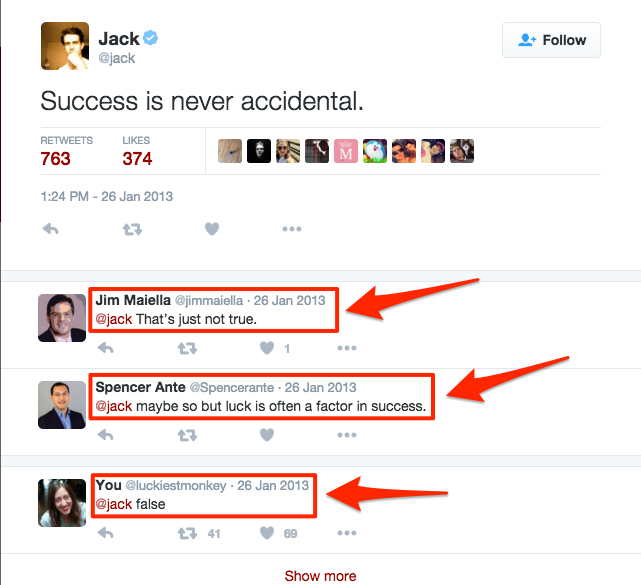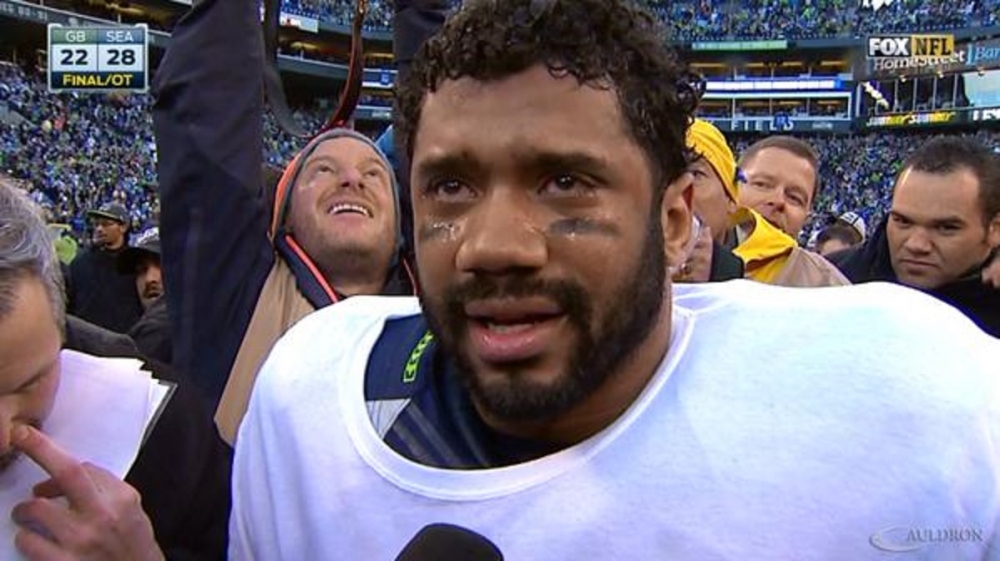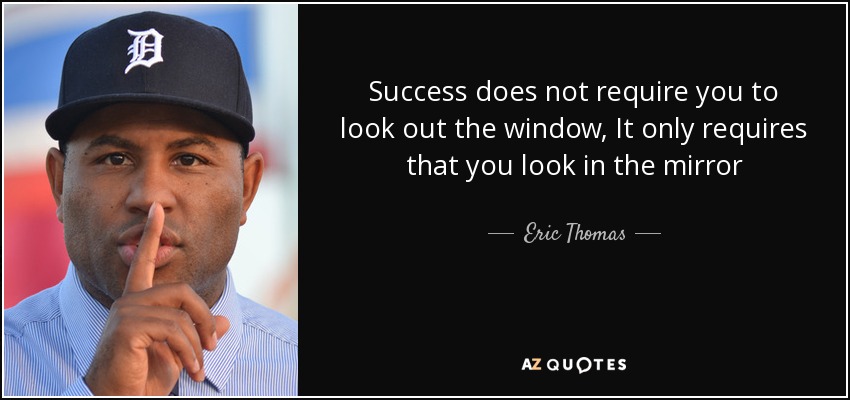A few years ago Jack Dorsey, co-founder of Twitter and founder of Square (the payments company), sent out a profound tweet,
“Success is never accidental.”
Given the fact he is worth over $2.3 billion and is easily one of the most success entrepreneurs of our time — you’d think people would listen up and see what they could learn from this man.
Instead, he was met with contention and jealousy. Most people claimed success was a matter of luck or circumstance such as being born with the right skills, to the right family, or with the right genetics. Of course, there were a few that agreed but the majority did not.

I couldn’t disagree with these people and agree with Jack Dorsey more. To quote another billionair, this time one with a net worth of nearly 50 billion:
“I have had all of the disadvantages required for success.” – Larry Ellison
From Oprah Winfrey to Larry Ellison we have countless examples of people overcoming the odds in order to reach outrageous levels of success and literally change the world for the better. Is this luck? I’d like to argue that successful people make their own luck.
For example, I was recently interviewing one of my online clients about how he managed to cut his body fat in half over the past 3-months. What he had to say wasn’t a surprise to me at all, in fact, it mimics what every successful client I’ve ever had has told me. Here’s a short excerpt:
What were the most important factors in your success over the past 3-months?
“The first was setting measurable goals and reviewing them often. I had never done that before, at least not for my body. Second,having a detailed plan made a huge difference.”
You told me that you’ve never been able to follow through on your fitness goals in the past. What made the difference this time?
“In the past my goals were vague and ambiguous. Gain muscle and lose fat. This time I had very clear and specific goals that were measurable. Being able to measure progress kept me motivated and excited. Also, in the past my plan was to ‘workout’ and ‘eat healthy’.Unclear goals and poor planning led me to fail.“
Interesting, notice he forgot to mention luck or circumstance? Just to be sure, I asked him:
Did luck or circumstance play a role in your success?
“Luck? No, it was actually a lot of hard work… but I will say having a detailed plan allowed me to work work a lot harder because I didn’t have to think about it. Regarding circumstance, it’s never a good time to go to the gym and workout. I’m always busy. It was a matter of prioritizing it and scheduling it on my calendar.”
Goals, planning, and hard work made all the difference. This is the exact same story I hear from every successful client when I interview them. It’s the same thing I’d tell you if you interviewed me about the success I’ve achieved with my body or in my business. And it’s probably the same thing you’d tell me about anything great that you’ve accomplished.
Just to further nail the point home, Ralph Waldo Emerson said,
“Shallow men believe in luck, believe in circumstances… strong men believe in cause and effect.”
Losers believe in that shit. Winners set goals, plan, work hard, and make their own luck.
Successful people know better and only talk about luck publicly when they are trying to be hyper politically correct and say all the “right” things (e.g. pulling a Russell Wilson).

I like Russell Wilson since I’m a big Badger fan, but damn — does the guy have a personality? He sounds like he learned from Crash Davis in Bull Durham. Am I right? I know Ryen Russillo knows what’s up.
“We gotta play em one day at a time. I’m just happy to be here. I hope I can help the ballclub. I just want to give it my best shot and the good lord willing, things will work out.”
– Crash Davis in Bull Durham
So, how can you implement this in your own life and accomplish your health and fitness goals? Keep in mind this strategy isn’t limited to health and fitness goals. You can literally do this same exercise below for any area of your life or anything you want to accomplish.
Simple. Start by setting goals the right way. Here is the process I take all my clients through:
How to Establish SMART Goals For a Badass Body:
S – Specific
M– Measurable
A – Attainable
R – Relevant
T – Time-bound
Specific: Your goal MUST be clear. Answer these questions:
- What: What do I want to accomplish?
- Why: Specific reasons, purpose, or benefits of accomplishing the goal.
- Who: Who is involved?
- Where: Identify a location.
- Which: Identify requirements and constraints.
Measurable: You MUST be able to track your progress, and measure the level of success. Your goal needs to answer questions such as:
- How much?
- How many?
- How will I know when it is accomplished?
Attainable: You must set an attainable goal. I don’t believe in being “realistic” but you must set a goal that can actually be accomplished in the next 3-months. “Adding 30 pounds of muscle, slashing body fat from 20% down to 5%, and looking like Greg Plitt” is not an attainable goal in the next 3-months. Cutting body fat from 20% to 12%, adding 5 lbs of muscle mass, and reducing waist size by 2 inches is.
- Define your attainable goal.
- Make sure you quantify your goal so you can measure your progress. Looking like Wolverine is awesome, but what does that mean in terms of numbers? 7% body fat, 10lbs of muscle, etc. Get it?
Relevant: You goal MUST matter to you and have an impact on your overall life. You don’t want to work really hard, accomplish your goal, and then say, “That was nice, but it doesn’t really have much of an impact on my life.” We want to make sure the goal will actually move the needle in your life. A relevant goal should answer “yes” to these questions:
- Does this seem worthwhile?
- Is this the right time to work on this goal?
- If you just started a new business or had a baby, your priorities may lie elsewhere. You have to be able to make your health and fitness goals a priority in your life in order to accomplish them.
Time-bound: Your goal MUST have a deadline. We are trying to accomplish something in a specific timeframe, typically 3-months. Parkinson’s Law — if we don’t put time constraints on your goal, the time to accomplish it will expand indefinitely. The timeframe should be long enough that you can do something great and make a real difference, but not so long that it’s easy to lose sight of the endgame.
- Define a due date for your goal. Typically, this should be a 3-6 month goal max.
- Setting a 1-year goal is great, but breaking it down to 3-month milestones is better. It’s going to be very hard to stay motivated over a year, but reaching 3-month milestone goals can create incremental progress and help keep you motivated over the long haul.
And if you were my client that’s the exact process I’d walk you though.
If you want to make sure you accomplish your next weight loss goal, add on that extra 10lbs of muscle, or get those 6-pack abs — DO THIS EXERCISE. DO IT NOW!

If you don’t do this exercise, you have nobody to blame but yourself next time you fail at something. Success does not require that you look out the window, it only requires you to look in the mirror. The only person you need to be successful is staring right back at you. Succeed or fail, it’s on YOU.
Note: If you look in the mirror and see someone else, you may have bigger problems.
Remember, success isn’t for everyone.
